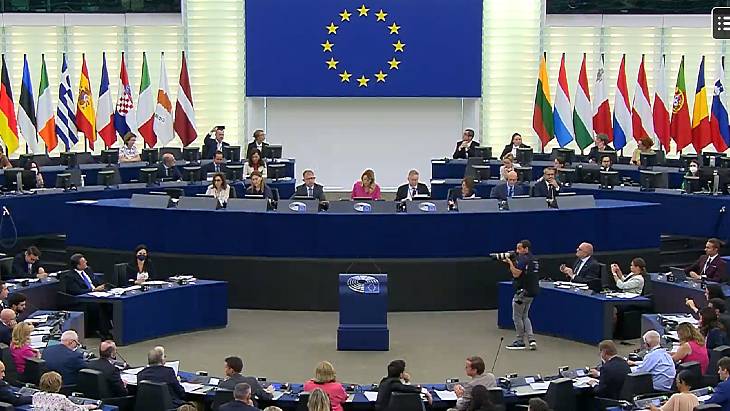The vote to object to the European Commission's taxonomy plan required the backing of a majority of all MEPs - so 353 of the 705 MEPs - with speculation in the run-up to the vote that the result would be too close to call.
But when MEPs voted on Wednesday, the 278 MEPs who opposed the taxonomy plan were outnumbered by the 328 MEPs who voted against the effort to block it, with 33 abstentions. Sixty five MEPs did not take part in the vote.
The result means that the European Commission's proposals to include certain nuclear and gas activities within the list of investments that meet the taxonomy requirements, is now due to come into force from the start of 2023, given that the European Council is not expected to object to it.
Sama Bilbao y León, Director General of World Nuclear Association, the international organisation that represents the global nuclear industry, said: "The European Parliament's positive vote sends a clear endorsement of nuclear energy to the financial community. It has listened to the science and recognised that sustainable investment in nuclear energy will help the EU reach net-zero by 2050. Now governments, investors, and industry must act urgently and accelerate the deployment of new nuclear capacity to achieve this goal."
Yves Desbazeille, Director General of Nucleareurope, the Brussels-based trade association for the nuclear energy industry in Europe, said: "The science clearly states that nuclear is sustainable and essential in the fight against climate change. It is fantastic to see that a majority in the European Parliament has decided to listen to the experts and take the right decision. We have less than 30 years left to decarbonise our economy in a sustainable way. By listening to the science, these MEPs have strengthened the EU’s chances of achieving this ambitious goal."
The background
The European Union aims to be climate neutral by 2050. To help that process it has come up with a system to "facilitate sustainable investment". The Taxonomy Regulation provides investors with guidance on economic activities that can be considered environmentally sustainable. It also obliges European companies to report their level of taxonomy-aligned undertakings. Any activity excluded from the list faces being cut out of sustainable finance products and will find itself at odds with long-term EU policy objectives.
There has been a split within the European Union over whether or not nuclear power - and natural gas - should be included as being "sustainable". Nuclear energy was left out of the initial Delegated Act pending further assessment. But this further assessment by the EU Joint Research Centre, reviewed by two further expert bodies, concluded that the technology was sustainable. As a result, the Commission has now taken steps to include nuclear energy as a transitional activity in the taxonomy by adopting a Complementary Delegated Act (CDA).
Supporters of nuclear power, including 12 EU member states who publicly backed its inclusion, say that nuclear is a low-carbon power source that must be part of any energy mix to tackle climate change, and does not cause more significant harm than other industries included in the taxonomy. They say that the science, and evidence-based policy, support its inclusion. Opponents say that it should not be included because radioactive waste means it is not sustainable. For the European Union, it has been one of the highest profile recent issues where France - which backs nuclear - is on the opposite side to Germany.
An economic activity must substantially contribute to at least one of six environmental objectives without causing significant harm to the others, for it to meet the EU's criteria for inclusion:
- Climate change mitigation
- Climate change adaptation
- Sustainable use and protection of water and marine resources
- Pollution prevention and control
- Protection of healthy ecosystems
- The transition to a circular economy
The European Commission has included certain nuclear and gas activities in the "transitional" category of activities - ones that "cannot yet be replaced by technologically and economically feasible low-carbon alternatives, but do contribute to climate change mitigation and with the potential to play a major role in the transition to a climate-neutral economy, in line with EU climate goals and commitments, and subject to strict conditions, without crowding out investment in renewables."
The new rules are due to come into force on 1 January 2023.
The decision on the EU taxonomy has been closely watched elsewhere as countries consider their own sustainable investment rules. In the UK, the chief executive of the Nuclear Industry Association, Tom Greatrex, said: "Nuclear’s inclusion in the EU taxonomy is a huge victory for science. The UK should now give nuclear the green label it deserves in our own taxonomy."





_18570.jpg)
_18938.jpg)
_33584.jpg)
_82983.jpg)





